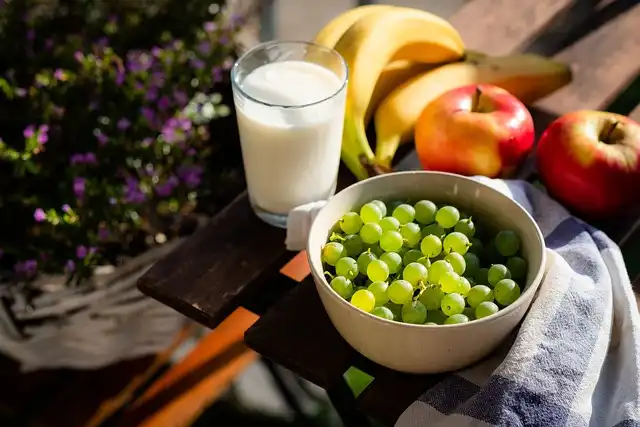All About Cats And Carbohydrates

According to the ISFM Consensus Guidelines on the Practical Management of Diabetes Mellitus in Cats, low-carbohydrate, high-protein diets are associated with better glucose control and a higher chance of remission.
Whether cats need carbohydrates is a warm subject– particularly in the pet food sector. Your pet cat’s wild forefathers were carnivores that lived off small victim such as birds and mice. Their natural diet regimen was high in healthy protein but had small amounts of carbohydrates. This has brought about debate concerning not only whether felines require carbohydrates, yet if they could actually be damaging.
Like other creatures, cats can acquire sugar from 3 resources: fat, protein, and carbs. Wild felines made use of healthy protein as their main source of glucose. However we understand that domestic pet cats can differ their energy resource depending on their diet– and this may also be valuable.
Nat is an eager jogger and has a passion for wellness, both within and outside the veterinary occupation where she works hard to sustain others in their own wellness. She resides in Nottingham with her companion, their young child and their cherished 14 year old lab x collie, Milly … View more
Before choosing regarding your feline’s diet regimen, it’s helpful to recognize what carbs are. From a chemical perspective, a carbohydrate is any type of compound that contains carbon, oxygen, and hydrogen. This consists of starches and sugars (digestible carbohydrates), and fiber (indigestible carbohydrates). Instances of carbs you might see noted on the ingredients of your feline’s food consist of vegetables, grains, and potatoes such as lentils, peas, and beans.
Lizzie has worked in buddy animal technique for over 10 years, in a variety of functions from small rural branch surgical procedures to huge medical facility settings. She additionally delights in investing, reading and horticulture time with her young little girls. She covers pet cat habits, nourishment, health and wellness, and various other topics for Cats.com … Sight much more
When debating the digestibility of carbs in pet cats, it is very important to remember that most cats aren’t provided carbohydrates in raw types. Carbohydrates are processed (typically ground and cooked) in commercial cat foods to improve digestibility.
The main function of digestible carbohydrates is as an energy source. While cats can use protein as their key power resource– like their wild forefathers– research study has actually shown that utilizing carbs might be more beneficial.
While the brief solution is no, the longer solution is that carbs play all sorts of vital roles in your pet cat’s wellness. In this write-up, I’ll explain what carbohydrates are and just how they affect your feline’s health from a vet’s point of view. I’ll also myth-bust the typical false impressions surrounding cats and carbohydrates.
A research taking a look at the impact of carbohydrate resources on diet plan digestibility in cats located starch digestibility was over 93%. Other researches have actually found similar outcomes, revealing that pet cats can efficiently digest carbohydrates when they are appropriately refined.
While pet cats may do not have several of the enzymes various other types use to absorb and metabolize carbohydrates, they upregulate other enzymes to make up. This includes an enzyme called hexokinase, which– although less efficient than glucokinase– they have in much better quantities than pet dogs.
The proof shows that as well as being physiologically adjusted to digest and metabolize carbohydrates, the carbohydrates discovered in industrial diet regimens are processed to be extremely digestible for felines. However are they simply inexpensive fillers? If carbohydrates have any benefits for your pet cat, check out on to discover out.
They show other adaptations throughout their digestive tract and metabolic process. As an outcome of these adjustments, a substantial clinical paper “Carbs and pet cats: The Predator Fantasy?” wrapped up that “pet cats can absorb carbohydrates and soak up and make use of sugar in a way comparable to various other species”.
We know pet cats can successfully digest and metabolize carbs in their diet plan, yet do they really need them? Carbohydrates are broken down in the body into sugar, which is essential. It is vital for your cat’s health and wellness, specifically their mind.
Digestible carbs are damaged down to make glucose, the major source of energy for every single cell in the body. Indigestible carbohydrates can not be absorbed, but still play an essential function in gut health.
A 2008 research study taking a look at the result of high-carbohydrate, low-protein diet regimens in pet cats found a ‘healthy protein sparing result’. This suggests that when your pet cat is fed a high-carb diet plan, they adapt to use carbohydrates as their primary energy resource, suggesting that the healthy protein in their diet plan is available to be made use of for more important duties, such as:
Rather than worrying regarding carbohydrates in your feline’s diet regimen, concentrate on how much you are feeding.
So, not just do carbs supply a superb resource of energy for your cat, they also permit them to utilize the protein in their diet regimen better. Yet the advantages of carbohydrates do not stop there.
There are currently no minimum requirements for carbohydrates in cats (or various other animals). However if you feed a full and nutritionally balanced diet regimen, carbohydrates will certainly not exceed 45% ME, with approximately around 25%.
The proof reveals that as well as being physiologically adapted to absorb and metabolize carbs, the carbohydrates discovered in industrial diet regimens are processed to be very absorbable for felines. We recognize pet cats can efficiently digest and metabolize carbs in their diet, but do they actually require them? When fed to pet cats as part of a nutritionally balanced diet plan, there is extremely little proof that carbs can be damaging. As carbs are an excellent energy source, you could stress that a high-carbohydrate diet plan might make your pet cat much more susceptible to getting weight.
When fed to cats as component of a nutritionally balanced diet, there is very little evidence that carbs can be unsafe. Yet you might have heard worries that high-carbohydrate diet plans might cause weight problems and diabetes. Allow’s delve into why this is a misconception.
Obesity is one of the biggest health and wellness worries for residential felines. As carbs are an excellent energy source, you may stress that a high-carbohydrate diet regimen might make your cat more vulnerable to gaining weight.
The American Organization of Feed Control Officials (AAFCO) establishes minimal preferred amounts of healthy protein (26% ME), fat (9% ME), and nutrients (completing around 5%). This makes up 40% of the diet plan. Dry food commonly has at the very least 15% wetness, bringing the total amount to 55%– damp food has a lot more water.
As for other animals, carbs are not an important nutrient for felines. Carbohydrates provide a power resource while boosting your pet cat’s gut health and stool consistency.
You might have heard insurance claims that high-carbohydrate diets might increase your feline’s danger of establishing diabetic issues mellitus. This is as a result of issues around carbohydrates enhancing the risk of weight problems, as well as affecting sugar and insulin level of sensitivity.
A lot of the dispute around carbohydrates and pet cats is about the group of carbs called ‘digestible carbs’. The research on this is clear: cats can absorb these carbs equally as well as a lot of other animals.
Research does not support this concept. When healthy and balanced felines are fed high-carbohydrate diet plans similar to industrial diets, several research studies have confirmed no adverse results on blood glucose or insulin sensitivity.
Nat is an eager runner and has a passion for wellness, both within and outside the veterinary career where she strives to sustain others in their own health and wellbeing. She lives in Nottingham with her companion, their young child and their beloved 14 year old lab x collie, Milly.
One of the most important point is to choose a diet that is well balanced and complete for your cat’s life phase and health. Rather than worrying about carbs in your pet cat’s diet plan, concentrate on how much you are feeding. Overfeeding is the biggest danger for your pet cat ending up being overweight or overweight– which can shorten their life expectancy and risk of a series of health problems.
They are additionally important to taste and texture. Most business damp pet cat foods have gelling agents that are likewise carbohydrates. Alternate diets such as raw food diet regimens tend to include the most affordable degrees of carbs.
An additional huge team of carbohydrates is indigestible carbohydrates– or fiber. Nutritional fibers pass with your pet cat’s digestive system tract without being absorbed or absorbed and do not supply any type of power.
Cats.com participates in the Amazon Services LLC Associates Program, an associate advertising and marketing program made to give a means for websites to make advertising charges by advertising and connecting to Amazon.com. Each time you purchase with among our independently-chosen web links, we’ll obtain a percent of the profits. Read more below.
Due to their effect on your feline’s digestive tract, there is an expanding rate of interest in the role of high-fiber diet plans for felines suffering from intestinal issues such as diarrhea, bowel irregularity, and inflammatory digestive tract illness (IBD).
While carbs do not create diabetes, a low-carb diet is typically the finest alternative for pet cats that are already diabetic person. According to the ISFM Agreement Guidelines on the Practical Administration of Diabetes Mellitus in Cats, low-carbohydrate, high-protein diet plans are related to far better sugar control and a higher possibility of remission. This is since diabetic cats are much less able to control their sugar from carbs than healthy cats.
Cats.com uses top quality, reputable sources, including peer-reviewed researches, to support the cases in our write-ups. This material is consistently evaluated and updated for accuracy. Visit our Concerning United States page to learn about our requirements and satisfy our veterinary evaluation board.
Manage digestive tract mobility: fiber manages the activity within your cat’s intestine, meaning it moves with the intestinal tract at a healthy price. This aids pet cats that experience bowel irregularity or looseness of the bowels. It also enables your feline to absorb nutrients and eliminate waste items from their food quickly.
A research study checked out the impact of diet on fat in felines. They revealed that a low-carbohydrate diet (and therefore high fat) can cause pets to acquire 2.5 times a lot more fat compared to high-carbohydrate (and as a result slim) diets! Pet cats additionally like the preference of low-carbohydrate, high-fat diet plans so are most likely to over-eat.
On the whole, the proof shows that a high-carbohydrate diet regimen might in fact protect your cat from obesity. However, the quantity you feed is a lot more essential. Study reveals that the significant reason for obesity in cats is overfeeding.
1 Atta Pet cat2 British Shorthair cats
3 carbohydrates
4 diets
« FDA WARNS: Certain Lots Of Darwin’s Natural Selections Pet Food Contaminated With Salmonella And ListeriaLittle Girl Replaces The Husky She Stole From Her Neighbor With A Stuffed Dog »
